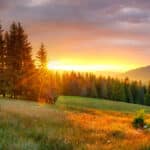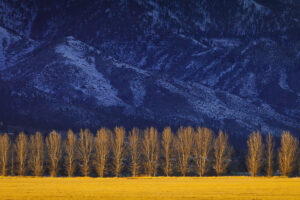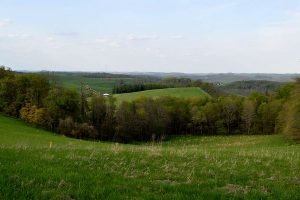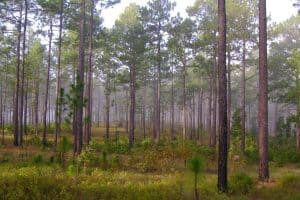I had a bit part 46 years ago in my high school’s senior class musical, “Brigadoon.” Since I can’t sing, dance or act, I was cast as a dry goods merchant. I opened the play with a few lines of Scottish brogue that sounded like dinosaur gargle while trying to keep my kilt from falling into the orchestra pit.
I was then expected to disappear–just like this weird little medieval Highlands village, which had cut a funky deal with the Lord that allowed it to come back to life one day every century. While they slept, the villagers learned to speak modern English with Pittsburgh accents.
On Brigadoon’s SHOW-TIME! Day, all villagers had to stay in the box. If anyone left, the “miracle” ended and they were forced to eat haggis for eternity. (Haggis, a traditional dish, is made of sheep’s “pluck” — heart, liver and lungs — boiled in the animal’s stomach, presumably after it has been dismembered.)
My kid, Harry, was the nerdball troublemaker who tried to break the spell because Jeannie was marrying Charlie, not Harry. His lack of team spirit came from his Mother’s side of the family.
Harry was the only Brigadoonian who thought life lived in suspended isolation, like a periodical cicada, was a curse. I’m more sympathetic to his position today than I was on stage where I tried to persuade him to join the family weaving business. Harry’s reluctance to throw in with me was understandable since I had failed to make a single sale in four performances and had woolens coming out of my ears.
Harry ends badly, and the lusty lads and lassies stay happily stuck where they were. One modern fellow from Manhattan, who had been smitten by a local hottie with whom he once shared a heather on a hill, joins their hibernation. The one time I tried heathering on a hill, she got allergic sneezing and I was worked over by fire ants.
I have lived in the Allegheny Highlands of Virginia for a quarter century. Our geology is that of Scotland. Many residents trace back to Scots who migrated to northern Ireland and then in the mid-1700s slipped into these mountains looking for land and freedom.
My county, Highland, has 2,500 full-time residents, one blinking traffic light, two lawyers (one of whom is my wife; the other of whom is not) and many sheep, whose pluck we admire and do not boil in situ.
Our high elevation and climate allow us to tap sugar maples. We claim to be the country’s southern-most commercial producer of maple syrup, though we only make a few thousand gallons.
For more than 50 years, outsiders have driven over switchback mountain roads to our two-weekend, mid-March Maple Festival. They come for maple-glazed donuts and a breakfast of buckwheat pancakes with syrup and sausage gravy. Our Festival is as gastronomically incorrect as we can make it. We reject sugar-free this, low-carb that, any grease that does not Oink and every oil that comes out of a fish.
About a year ago, a fire destroyed the sugaring house of one of our major producers. Many in the community helped him rebuild.
Two weeks ago, David Fahrenthold, a capable Washington Post reporter, wrote “The Pancake-Ready Paradise: A Sugar-Fueled Fire Nearly Tapped the Spirits of Rural Virginia’s Maple Syrup Makers. They’re Hoping for Sweeter Days,” which described the fire, Festival and county.
“The Allegheny Mountains,” he wrote, had “cursed Highland with isolation but blessed it with a combination of weather, soil and sugar maples….” He described us as “…the emptiest [county] in Virginia, and one of the emptiest in any state east of the Mississippi.”
Well, my email knee jerked. “‘Cursed with isolation?’ No one here thinks that. We are not isolated from the Nation’s politics, economics, wars, culture, media and intellectual ferment. Four mountains and two-lane roads do protect us from many of the things about which reporters in the Post’s newsroom regularly complain. Perhaps, what you think depends on where you sit. What you write, should, however, not.” He thanked me for my message.
His words got me to thinking: In what sense, if any, is rural America isolated and empty? And what difference does it make?
We seem to be about as plugged in as other Americans with television, high-speed Internet and cell phones. We are subject to the same laws, taxes, gasoline prices, global warming, interest rates, stock markets, foreign-policy adventures and telemarketers.
It takes us less time than city folks to do many routine things like see a doctor, but more to be greeted at Wal-Mart or eat Thai, both of which are an hour’s drive away.
Like many communities, we are isolated from blue-collar manufacturing and high-income, white-collar jobs. We are also largely isolated from gangs, drugs and sirens. A couple of kids were arrested for shooting cows…with paintballs.
To what extent are we empty? True, we have more land per resident than most others. But looking empty doesn’t mean we are not here. That’s the attitude Europeans adopted when locals discovered them on their beaches, planting flag poles and talking funny.
The New World was not new to those who had lived in it for 15,000 years, nor did it lack civilization. The locals, however, were different.
To casually characterize us as isolated and empty is, I think, implied code for saying we don’t quite measure up because rural is different.
The increasing number of urban people moving to the countryside quickly understand that they have not entered a vacuum. Their neighbors are people—not quaint relics, not noble rustics. Like everyone else, we are individuals with good points, bad points, and all points in between.
When off-hand descriptions marginalize the 50 million who live in rural America, harm is done. We become the outback other, zoo specimens that are interesting to observe but dangerous in the wild.
Most Americans now live in metropolitan areas. That’s the norm. Because we’re here, not there, it’s easy to consider us a little abnormal.
Now I’m sure David Fahrenthold didn’t mean to be mean, and he wasn’t. His reporting was accurate, and he treated those he interviewed with kindness. But his words created a familiar pigeonhole, a box, like Brigadoon, in which we are expected to stay.
My point is simple: We, out here, don’t disappear into our snowy forests only to emerge once a year, bearing a pancake in one hand and a donut in the other. We’re one-sixth of the U.S. population.
While some Americans are apples and others are oranges, as Gus Portokalos, father of the bride, said at his daughter’s big fat wedding, “We all different, but in the end, we all fruit.”
This content may not be used or reproduced in any manner whatsoever, in part or in whole, without written permission of LANDTHINK. Use of this content without permission is a violation of federal copyright law. The articles, posts, comments, opinions and information provided by LANDTHINK are for informational and research purposes only and DOES NOT substitute or coincide with the advice of an attorney, accountant, real estate broker or any other licensed real estate professional. LANDTHINK strongly advises visitors and readers to seek their own professional guidance and advice related to buying, investing in or selling real estate.









1 Comment